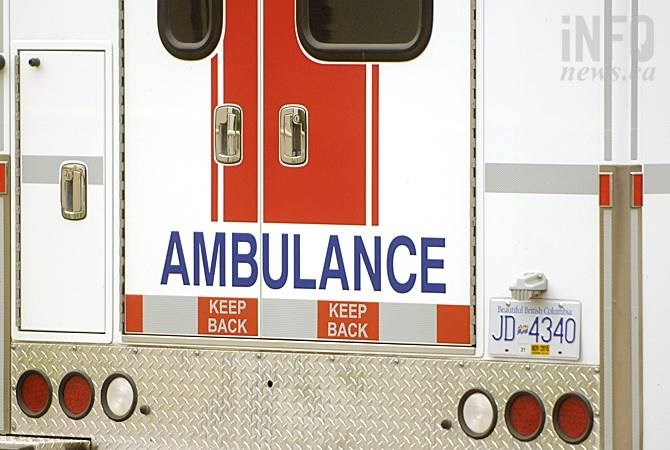
(ADAM PROSKIW / iNFOnews.ca)
May 30, 2020 - 8:00 AM
A higher than normal number of overdoses in Kamloops is having an impact on city's most vulnerable population. The City and social service representatives believe the increase is due in part to the Canada Emergency Response Benefit and other pandemic-related financial relief.
The number of overdose calls last month in Kamloops was more than double compared to April of 2019, according to statistics from B.C. Emergency Health Services, the agency that oversees the ambulance service in the province.
Emergency health services spokesperson Sarah Morris says 71 people called an ambulance in Kamloops because of an overdose in April, while 35 called during the same month in 2019.
“This correlation between fraudulent access of the CERB funding and other funding that’s become available, and the increased consumption and the related overdoses, it’s definitely something we’re aware of, discussing and trying to figure out solutions to,” the City's project manager for housing and homelessness Ty Helgason says.
Helgason says the City is working to create a solution alongside B.C. Housing and Interior Health, as well as social services agencies like ASK Wellness.
Bob Hughes, executive director of ASK Wellness, says some people had seen more money in one month than they were used to, which led to an increase in drug and alcohol consumption.
“We believe the injection of funds with this population has comprised people’s health and wellbeing,” Hughes says.
He says people who may be on income assistance or disability have sometimes applied for CERB and received a $300 boost for income assistance programs. Hughes says there were some people who received close to $6,000 in one month because of combined benefits, which was made possible by loopholes in the CERB application.
Hughes says one man who applied for the extra income then feared the money would lead to relapse.
“He received in one lump sum two different cheques, but on the same day, he received two $2,000 cheques. He brought them to his worker and said, ‘I’ll just relapse if I take this money… I know it's fraud and I don’t think I should take it,'" Hughes says.
“There are cases of people who are getting this money and then realizing they shouldn’t have it. It becomes a windfall of cash that allows people to buy way more alcohol, purchase drugs and end up increasing the chaos in their lives.”
The overdoses could be due in part to higher consumption levels, as well as a tainted drug supply. Provincial health officer Dr. Bonnie Henry recently stated the drug supply chain has been restricted due to the pandemic lockdowns, and more drugs are being made locally and cut with toxic materials.
“There’s an unrelenting public health emergency related to the opioid crisis as Bonnie Henry has identified and many of the drug checking services have pointed out… and then you add further fuel to that by providing people with very significant addictions access to upwards of $4,000 to $6,000 in a one-month chunk and you have a recipe for increased violence on the street and increased drug consumption that leads to overdoses,” Hughes says.
In addition to the overdoses, Hughes is concerned for the people who have committed CERB fraud as he wonders what kind of future financial assistance may be taken away for repayment.
“People that are struggling with disabilities and serious substance use, they’re reliant on fixed incomes. The only method for the federal government would be to stop making GST rebate payments, which are $171 every quarter, so that would, as we did the math on it if you received it for the four months… it would take them almost a decade to repay the false income from the funding that was received.”
Hughes recently wrote a letter to various ministers and the federal government asking for tighter control on the application to prevent fraud.
“It would be wise to see an additional question to the CERB application, and that is, ‘Are you currently receiving provincial or territorial benefits?’ Then (the government) would be able to cross-reference.”
To contact a reporter for this story, email Jenna Wheeler or call (250) 819-6089 or email the editor. You can also submit photos, videos or news tips to the newsroom and be entered to win a monthly prize draw.
We welcome your comments and opinions on our stories but play nice. We won't censor or delete comments unless they contain off-topic statements or links, unnecessary vulgarity, false facts, spam or obviously fake profiles. If you have any concerns about what you see in comments, email the editor in the link above.
News from © iNFOnews, 2020